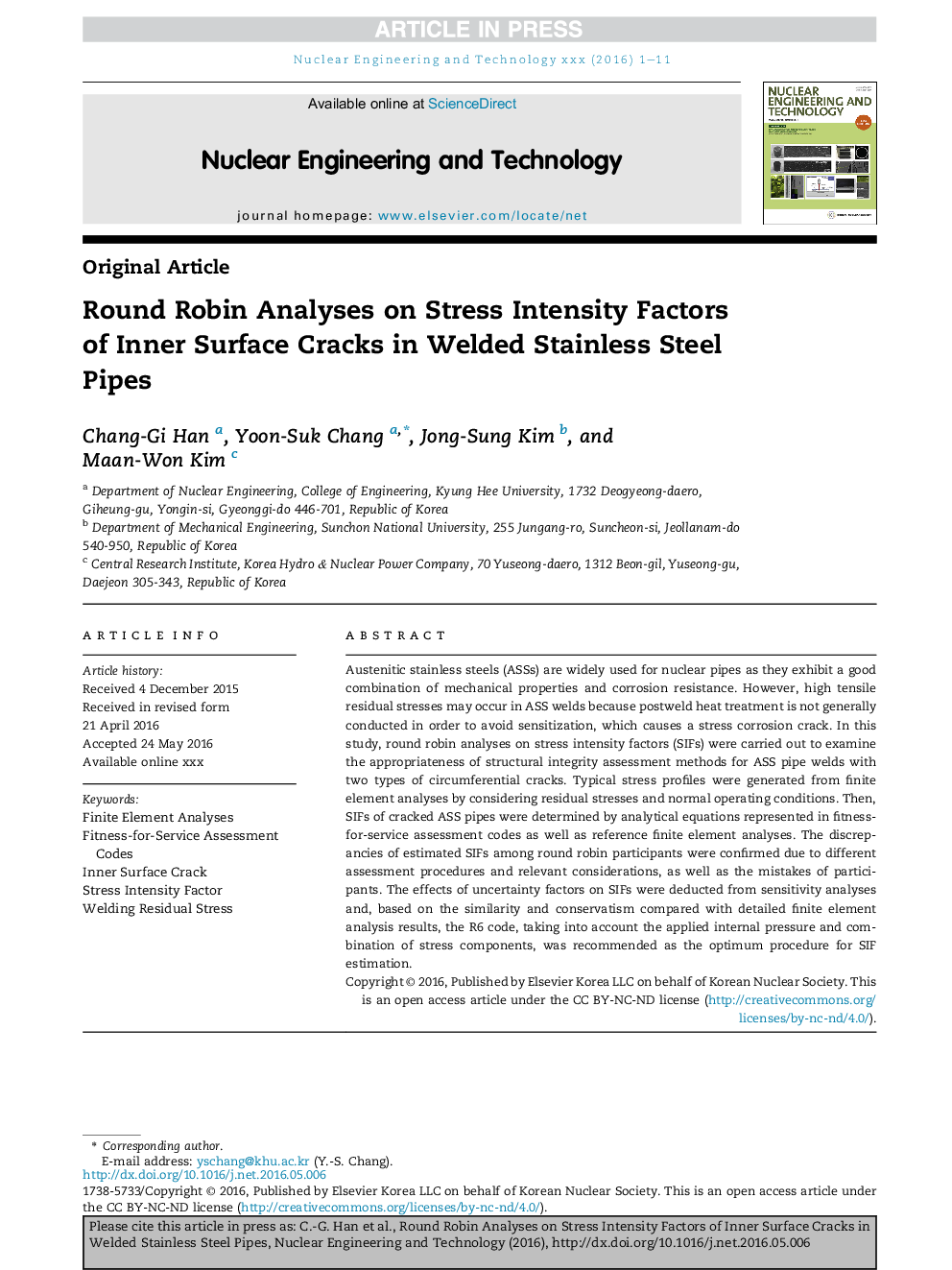| Article ID | Journal | Published Year | Pages | File Type |
|---|---|---|---|---|
| 5477910 | Nuclear Engineering and Technology | 2016 | 11 Pages |
Abstract
Austenitic stainless steels (ASSs) are widely used for nuclear pipes as they exhibit a good combination of mechanical properties and corrosion resistance. However, high tensile residual stresses may occur in ASS welds because postweld heat treatment is not generally conducted in order to avoid sensitization, which causes a stress corrosion crack. In this study, round robin analyses on stress intensity factors (SIFs) were carried out to examine the appropriateness of structural integrity assessment methods for ASS pipe welds with two types of circumferential cracks. Typical stress profiles were generated from finite element analyses by considering residual stresses and normal operating conditions. Then, SIFs of cracked ASS pipes were determined by analytical equations represented in fitness-for-service assessment codes as well as reference finite element analyses. The discrepancies of estimated SIFs among round robin participants were confirmed due to different assessment procedures and relevant considerations, as well as the mistakes of participants. The effects of uncertainty factors on SIFs were deducted from sensitivity analyses and, based on the similarity and conservatism compared with detailed finite element analysis results, the R6 code, taking into account the applied internal pressure and combination of stress components, was recommended as the optimum procedure for SIF estimation.
Related Topics
Physical Sciences and Engineering
Energy
Nuclear Energy and Engineering
Authors
Chang-Gi Han, Yoon-Suk Chang, Jong-Sung Kim, Maan-Won Kim,
